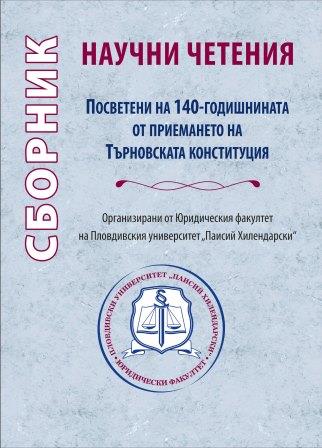Контролът за пропорционалност и правото на собственост (влияние на европейската и конституционната практика)
Proportionality Test and the Right to Property (Influence of European and Constitutional Practice)
Author(s): Lyuba Panayotova-Chalakova
Subject(s): Law, Constitution, Jurisprudence, Civil Law, EU-Legislation
Published by: Пловдивски университет »Паисий Хилендарски«
Keywords: proportionality control; property; public benefit; public interest; legitimate purpose; case law; Constitutional Court; European Court of Human Rights; Additional Protocol No 1 to the European Convent
Summary/Abstract: The purpose of this article is to analyse some of the decisions of the Bulgarian Constitutional Court and the European Court of Human Rights in Strasbourg regarding the protection of property right. This right is fundamental and receives protection in both domestic and European human rights law. In this respect, proportionality control is essential. Thanks to the interpretation of Art. 1 of the Additional Protocol, the European Court has achieved a major transformation. From a legal provision that seeks, above all, to secure the sovereign power of States, the court makes it a provision - instrument for the protection of property rights. The Court does so by subjecting interventions to property to a precondition, namely a fair balance. Proportionality control is the search for a balance between the common interest and that of individual private owners. The Court of Strasbourg has already given real control to measures that restrict property, not just those that take it away. The Constitutional Court, for its part, also increases its control by including proportionality as a criterion. A very important point in control is the availability of fair remedies as well as the procedures followed. In conclusion, as much as the protection of property rights has been updated,it still remains relative and incomplete. And this is because in this matter, both the European and the Constitutional Courts abstain from serious control of state objectives. They annul only extremely serious property interventions that clearly exceed any normality.
Book: Сборник от научни четения, посветени на 140-годишнината от приемането на Търновската конституция
- Page Range: 389-408
- Page Count: 20
- Publication Year: 2019
- Language: Bulgarian
- Content File-PDF

